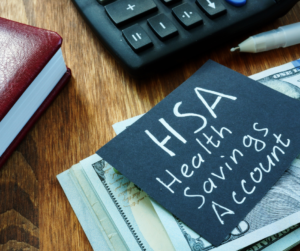Most investors have more than one goal – retirement, college, a home down payment, and, more and more often, covering health care costs. While there are various ways to tackle that last one, many investors overlook this tax-free health savings accounts for those ever-growing out-of-pocket expenses, with unused assets available for retirement as well.
How do HSAs look in today’s market?
“If you are in good health, this is an excellent vehicle for long-term investing,” says Ed Snyder, a planner with Oaktree Financial Advisors in Carmel, Indiana. “If you are in bad health, this is an account that allows you to save money on your health care expenses because you can pay for them with pre-tax dollars. The HSA is simply the best kind of account going today.”
As the name says, health savings accounts, made possible by a law passed in 2003, are investments designed for paying medical costs. Contributions are deducted from taxable income, much like money put into a 401(k), and investors can typically choose cash or funds. Contributions and investment gains are not taxed on withdrawal if used for approved medical expenses.
Unlike the flexible spending accounts, which require that contributions be spent in the calendar year, HSA assets can remain in the account to grow for years. And after the account owner reaches 65, assets can be withdrawn without penalty and used for anything, though income tax will be due, just like with 401(k) withdrawals.
But there are catches. To be eligible, one must have health insurance with an annual deductible of at least $1,350 for an individual or $2,700 for a family. For 2019, annual contribution limits are $3,500 for an individual account, $7,000 for a family account, plus $1,000 for an account holder 55 or older during the year. (Note that contributions for 2018 can be made through April 15, 2019, as with individual retirement accounts.)
Speak with the Right Financial Advisor For You
Finding the right financial advisor that fits your needs doesn’t have to be hard. SmartAsset’s free tool matches you with top fiduciary financial advisors in your area in 5 minutes. Each advisor has been vetted by SmartAsset and is legally bound to act in your best interests. If you’re ready to be matched with local advisors that will help you achieve your financial goals, get started now.
Proceeds can be used for most out-of pocket medical expenses such as co-payments, co-insurance – almost anything not paid by the health plan, though not the policy premiums. Check the details in IRS Publication 969.
“HSAs truly are one of the best deals out there,” says Brad Nelson, president and founder of Lyon Park Advisors in Rossville, Indiana. “The health savings account is such a good deal that it’s much easier to identify who would not be ideal than who would. Here are three that are not good candidates: You don’t have access to a high-deductible health plan, you’re just scraping by, you have 100 percent free health care for life and plan to work until you’re 70½ and are wealthy.”
Obviously, an HSA is not needed if you have health care insurance at work and buying a high-deductible policy makes no sense. Also, once you enroll in Medicare you cannot open a new HSA, though an existing one can be used for insurance to supplement Medicare coverage. (President Donald Trump has proposed allowing Medicare enrollees to open HSAs.)
Len Hayduchok, CEO of Dedicated Financial in Hamilton, New Jersey, points out that a high-deductible health care policy makes the most sense for a person healthy enough to avoid often having to actually pay those deductibles. Since an HSA must be paired with a high-deductible policy, it is not an option for a person likely to have high expenses year after year. The investor is better off paying higher premiums for low-deductible health coverage.
If an HSA makes sense, choose a provider that offers the types of investments you want. Some have more options than others.
“For money you expect to use for health expenses in the next couple years, I would put them in a money market or other fixed-income choice in the HSA,” Snyder says. “For longer-term money, I would diversify it across asset classes, with most of it in stock investments. This is the money you want to grow to be used 10 or 20 years or more down the road. This would be much the same strategy I would use in a retirement account.”
Jeffrey Eglow, chief investment officer for Guardian Wealth Advisory in Boca Raton, Florida, says he urges clients to put the maximum allowed into the HSA.
“One of the advantages of having an HSA is that you can invest the funds through a self-directed investment account, so you can invest depending upon your own risk tolerance,” Eglow says, describing accounts that allow virtually any type of holding. “I would advise our clients to not speculate in this account, invest in good quality companies and watch the assets grow.”
Once the HSA is up and running, investors are wise to leave the funds to grow, even if that means using other money to pay medical expenses in the short run, says Craig Keohan, chief revenue officer of HealthSavings Administrators, an HSA provider based in Richmond, Virginia.
“Savvy accountholders understand HSAs are about capitalizing on the long-term value of these accounts as investment vehicles for retirement health care costs,” Keohan says. “Rather than spending their HSA dollars on current medical expenses, they invest their funds and let them grow over time to become medical – and retirement – nest eggs.”
Investors can also enhance HSA growth by waiting for years to reimburse themselves for medical expenses paid out of other funds, Keohan says.
“There is no time limit on when accountholders must reimburse themselves for qualified medical expenses,” he says. “By paying for health care costs out of pocket and keeping track of the receipts, accountholders can invest their full HSA balance and watch it grow for years or even decades. Then, they can reimburse themselves tax-free for their past medical expenses and spend those reimbursed funds on whatever they choose – expenses, a boat, anything they wish.”
As mentioned, you have through April 15 to fund an HSA for 2018. But choosing a high-deductible health plan and an appropriate HSA to go with it can take some time. Experts urge investors to look out for high fees and to seek a plan with a wide range of investing options suitable for future needs as well as current ones.









